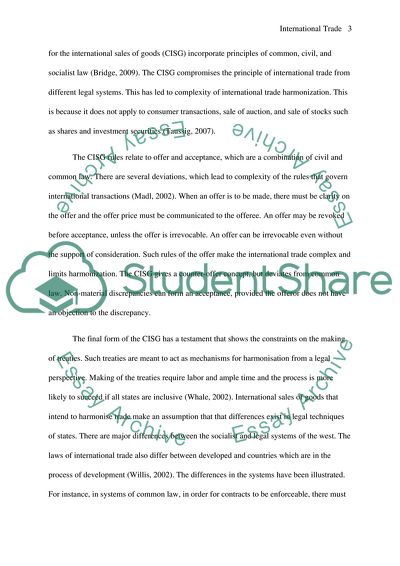Cite this document
(“International Transactions Law Assignment Example | Topics and Well Written Essays - 2000 words”, n.d.)
International Transactions Law Assignment Example | Topics and Well Written Essays - 2000 words. Retrieved from https://studentshare.org/law/1816241-the-international-transaction-for-the-sale-of-goods-is-far-too-complex-to-attempt-harmonisation-of-international-trade-critically-discuss-this-statement
International Transactions Law Assignment Example | Topics and Well Written Essays - 2000 words. Retrieved from https://studentshare.org/law/1816241-the-international-transaction-for-the-sale-of-goods-is-far-too-complex-to-attempt-harmonisation-of-international-trade-critically-discuss-this-statement
(International Transactions Law Assignment Example | Topics and Well Written Essays - 2000 Words)
International Transactions Law Assignment Example | Topics and Well Written Essays - 2000 Words. https://studentshare.org/law/1816241-the-international-transaction-for-the-sale-of-goods-is-far-too-complex-to-attempt-harmonisation-of-international-trade-critically-discuss-this-statement.
International Transactions Law Assignment Example | Topics and Well Written Essays - 2000 Words. https://studentshare.org/law/1816241-the-international-transaction-for-the-sale-of-goods-is-far-too-complex-to-attempt-harmonisation-of-international-trade-critically-discuss-this-statement.
“International Transactions Law Assignment Example | Topics and Well Written Essays - 2000 Words”, n.d. https://studentshare.org/law/1816241-the-international-transaction-for-the-sale-of-goods-is-far-too-complex-to-attempt-harmonisation-of-international-trade-critically-discuss-this-statement.


